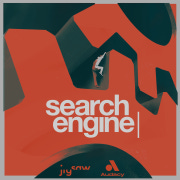The Good List 2024
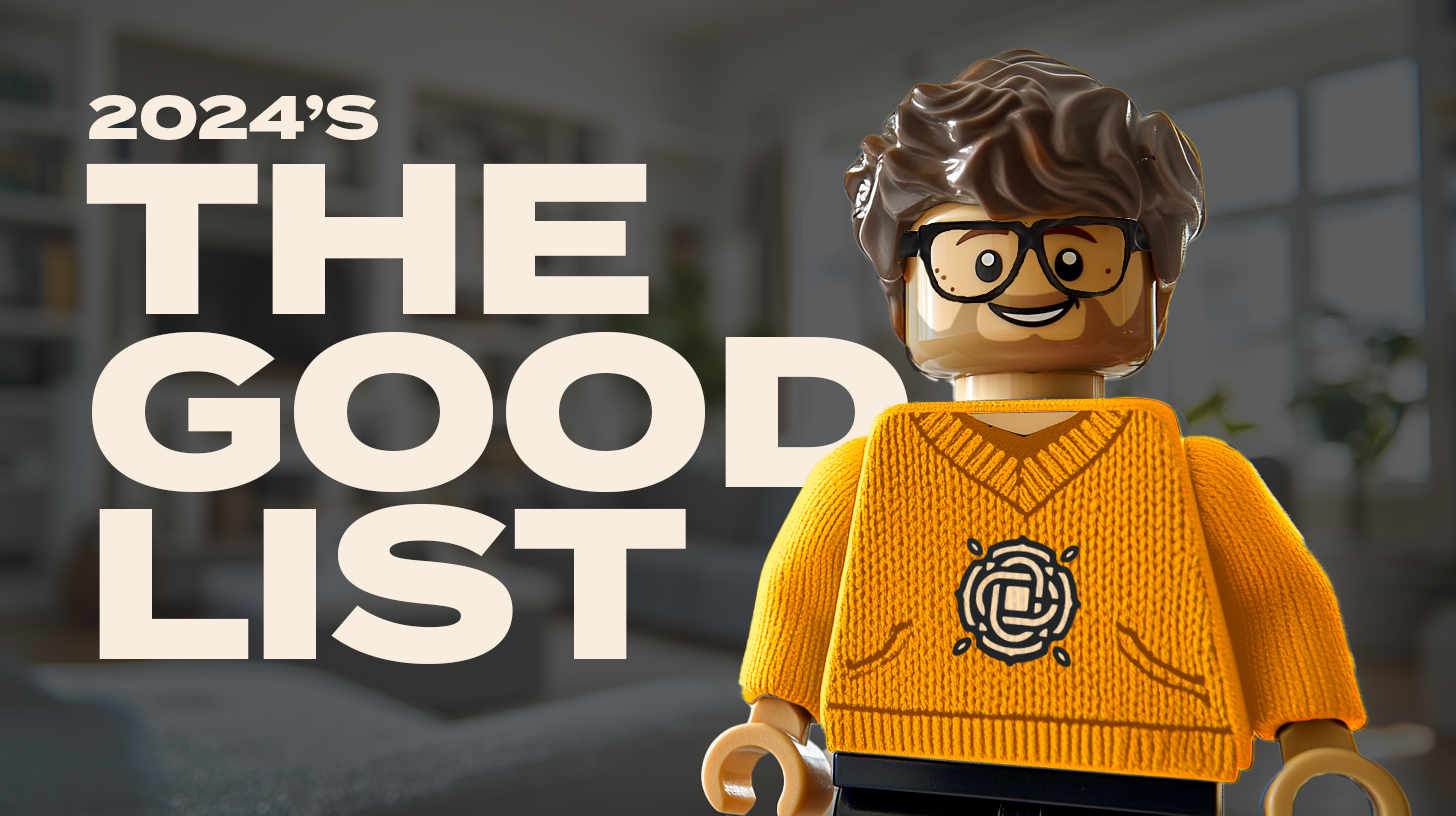
FWD 114: Things I loved in the year that was
One of the things you loved--most viewed, most commented, most shared, etc.--was the series of posts over the last six weeks framing the fundamental change in the marketing/media landscape, where we are and what happens next. One friend of CultureCraft framed it as the "this is one of the most compelling calls to action I’ve read since the Cluetrain Manifesto." Cluetrain created the social web as we know it, so this was--to say the least--high praise.
But it left you all with a lot of reasonable questions. Ones that are hard to engage over written text. So to kick off the year, on January 9, I'm hosting an extended session with teaching on post-trust landscape, Q&A, and an AMA session on all of your hot topics. This is one of those "live is where the action is" moments and I'm limiting seating so we can have a productive conversation. Before you sign off for the year, make sure you're registered.
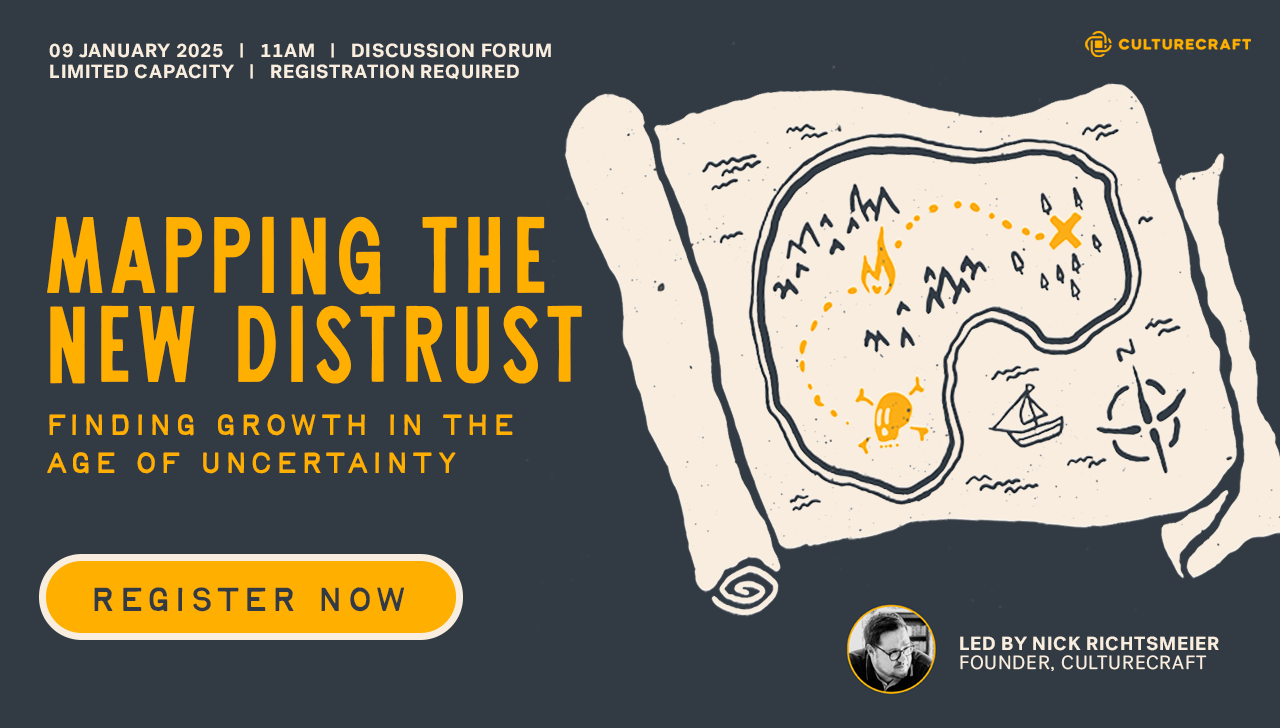
All registered? Good. Now on to the the meat.
If you've been with me for a while you know I finish the year with this edition: The Good List. It's not a "best of;" I'm too much of a buffet grazer across media and culture to tell you the best of anything. Like every year, this is an ode to love. Loving stories, experiences, visionaries, and inspiration. It is quite literally what it says "things I loved in the year that was." I do try to curate the list a little bit toward annual themes, but in many ways its a cry in the dark for what I want more of or what cut through the noise.
Year-end lists are arguably gauche and overraught. But what I want you to know is that I work very hard on this list. I want it to be a gift, an embarrassment of riches, and in some small way a view into my own psyche without the filter of "what is the business value of this?" So it's long, multimedia, and hopefully worth coming back to, forwarding to friends, and pulling from for your inspiration.
Enough prologue. Let's begin.
Signs of the Zeitgeist
I try to categorize these things into themes, and this year, this category screams with a thousand echoes across the canyon. This year the culture coalesced around some things we've been wondering for a while, and then suddenly agreed were the most obvious things in the world. If you want to understand "what we learned" in 2024 this is the survey course:
How Do I Use the Internet Now? - Ezra Klein on Search Engine Podcast
Though it came out late fall 2023, this launched the defining conversation on "the internet" in 2024. Ezra Klein this year was right about a lot of things that made a lot of people mad, placing himself at the eye of several storms. This article was my first sign that the world had changed and most advice that was floating about was anachronistic to a fault.

The Internet is a Machine that Devours Trust - Hank Green
Hank Green might be my favorite internet person. He and his brother John are many things, award-winning authors, philanthropists, and cultural guardians. But my favorite thing about them is that they are SMART. So much so that they can take complicated things and make them simple. This vlog said everything I wanted to say about the internet's failures and is the logical bookend to what started with the podcast above.
Hot Ones with Conan O'Brien
Hot Ones, the ridiculous interview show where celebrities eat progressively hotter spicy wings while being asked surprisingly insightful questions, is having a moment. As Buzzfeed pivots to be an AI machine entertaining to no one, it sold off Hot Ones to buy more servers or whatever one does when you're making a robot media company. Whether you've seen 100 Hot Ones episodes or its new to you, the Conan episode is a masterclass of comedic timing, preparation that looks like improv, and a reminder that all of this is very silly. All of what you ask? * THIS * (gesturing broadly across all of 2024)
The Resurgence of Physical Media and the Death Rattle of the Rental Economy
One side effect of the Long Digital Decade was the apparent end of ownership. We were all happy to pay $19.99 for access to a movie on Amazon Prime until we realized that we didn't own it, and the thing we had access to was a pretty poor representation of the original. People started comparing their Friends DVDs versus the Max streaming version (FYI, not the same). The streamers gutted their online catalogs in an attempt to save money by needing fewer servers. (A lot of what's happening right now comes down to servers.) Spotify was solidified as an extractive force and fans realized they could buy a record straight from their favorite band or listen to them nonstop for 2 years on Spotify, either way, the band made the same $$$.
Turns out, ownership is central to a thriving middle class. And since buying houses has been such a pain in the ass as of late, we're buying Blu Rays and vinyls instead.
Dr. Tressie McMillan Cottom's Instagram
Dr. Cottom came into my awareness like many people through her winning the MacArthur Genius Grant shortly after the rocket-fueled rise of her second book Thick. Dr. Cottom is the person who defines social criticism for me. She is brilliant, unfiltered, and willing to question everyone. No one was doing better interpretive work post-election than Dr. Cottom, and her Instagram is the perfect mix of personal reflections, views into her UNC classroom, previews of her New York Times editorials, and just classic speak-to-camera vlogs that more than once broke my brain. Her political views will not be for everyone, but her insights are near-universal.
Semafor - defining the intersection of digital media and politics
I will never forget how I felt reading Politico in 2007 and the lead-up to the 2008 election. It was insight and content I couldn't find anywhere else; they understood the rise of Barack Obama better than anyone. Central to that was reading a young, wildly researched and sometimes controversial columnist, Ben Smith. Smith got lost playing digital media games at BuzzFeedNews for a decade or so before resurfacing as co-founder of Semafor this year. Semafor is the best of what Politico was - focused, fast, thorough. The perfect mix of breaking news, muckraking, a bit of opinion, and aggregation. A true return of the fourth estate.
Happy Places
Some things I loved this year defied categorization. They were just happy, happy moments, and in today's America, this is worth celebration.
Benson Boone backflip at the MTV VMAs
First, news to me, the VMAs are still a thing. Second, Benson Boone, whose Beautiful Things was one of the few male-led songs of the summer, likes to backflip while he sings. It's incredible and proof that we can still have nice things.
Night School Bar
I've been very concerned about the future of contextual, integrated thinking now that its official that Higher Ed can't hold the line for liberal arts under historically imbalanced pressure. We can't build a culture if we don't have venues where we build adults who can apply history, narrative, writing, social awareness and reasoning to complex problems. Through the aforementioned Tressie McMillan Cottom, I discovered Night School Bar, a brilliant blend of old school spaces, craft cocktails, and the liberal arts. More of this, please.
The Power of Neighborliness
Some of you know that I led a local collective in my suburban Des Moines area, bringing together over 150 creatives, foodies, and farmers for a glorious Farm Dinner. All of this happened through my other endeavor, Lexicon Farms. I write and work a lot in digital spaces, but one of the most inspirational things I've seen is what happens when we invest in the ground we stand upon.
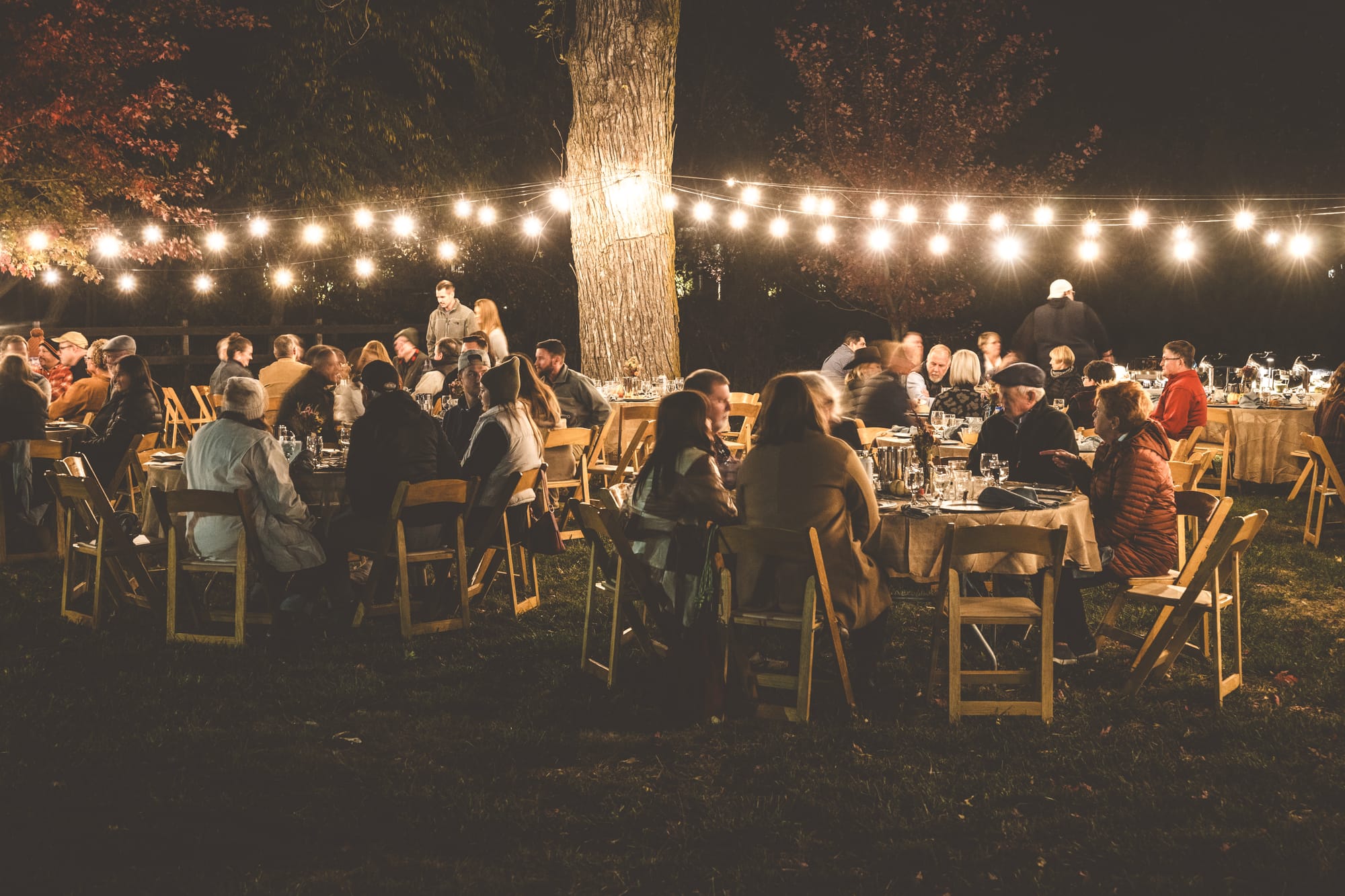
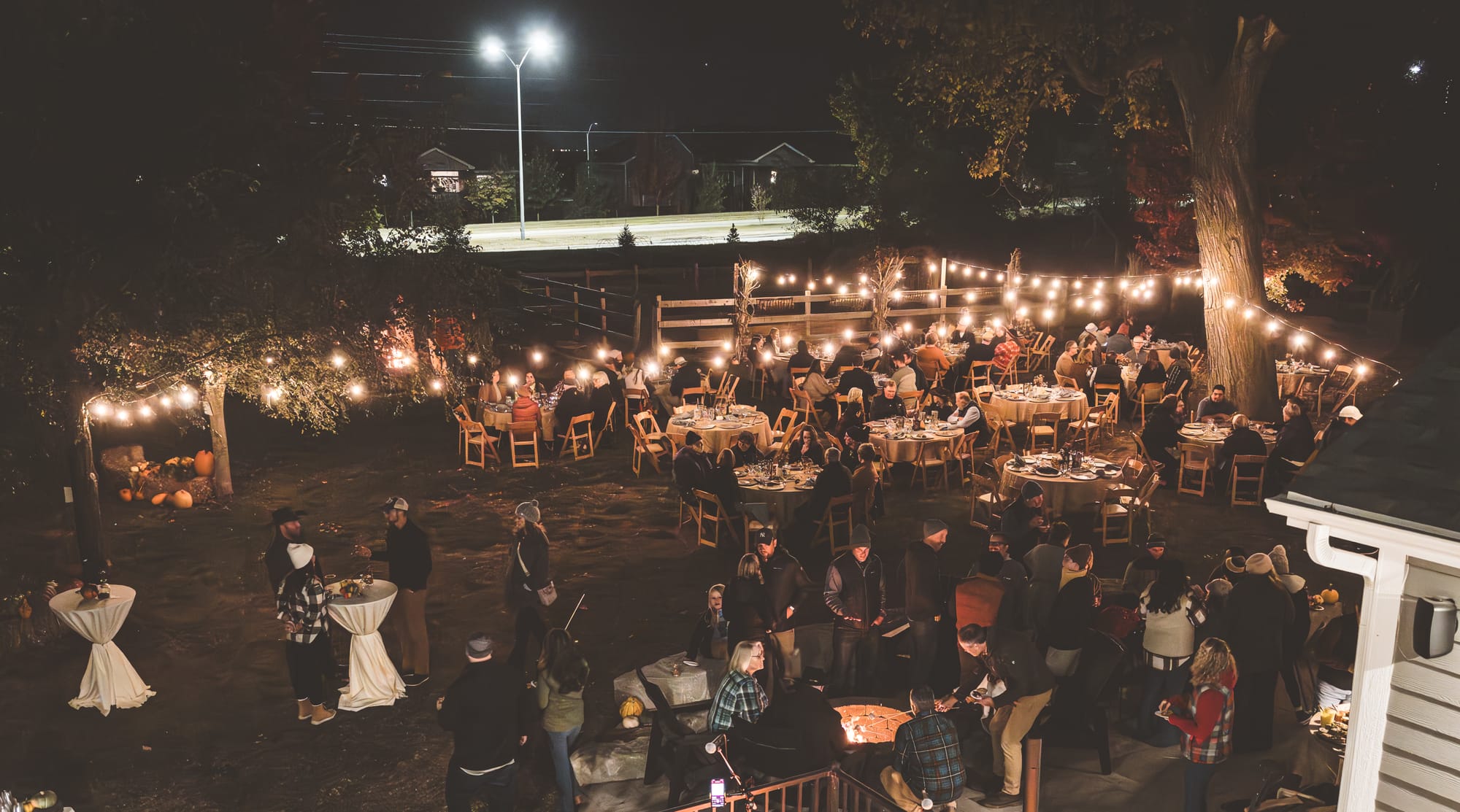

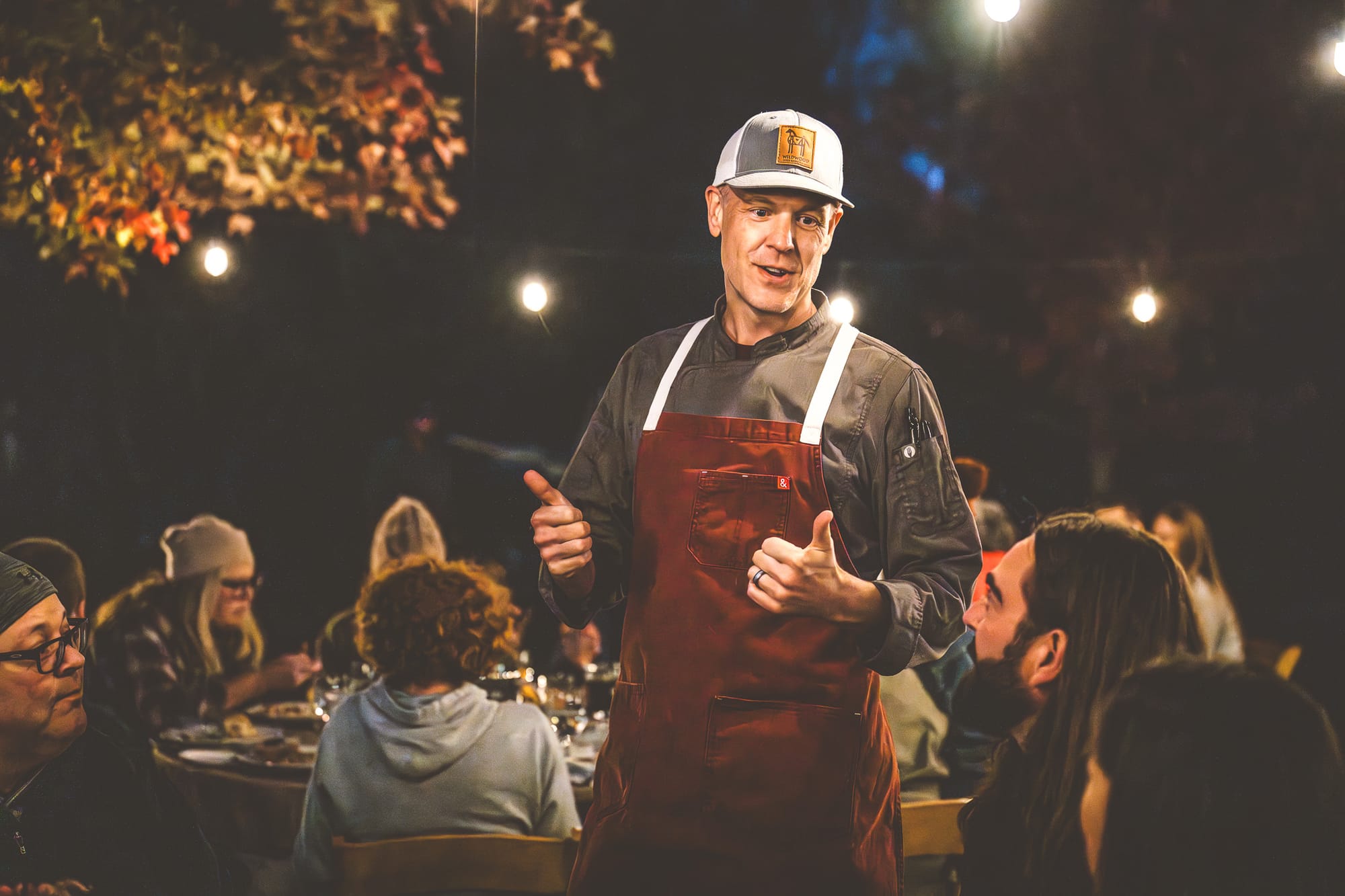
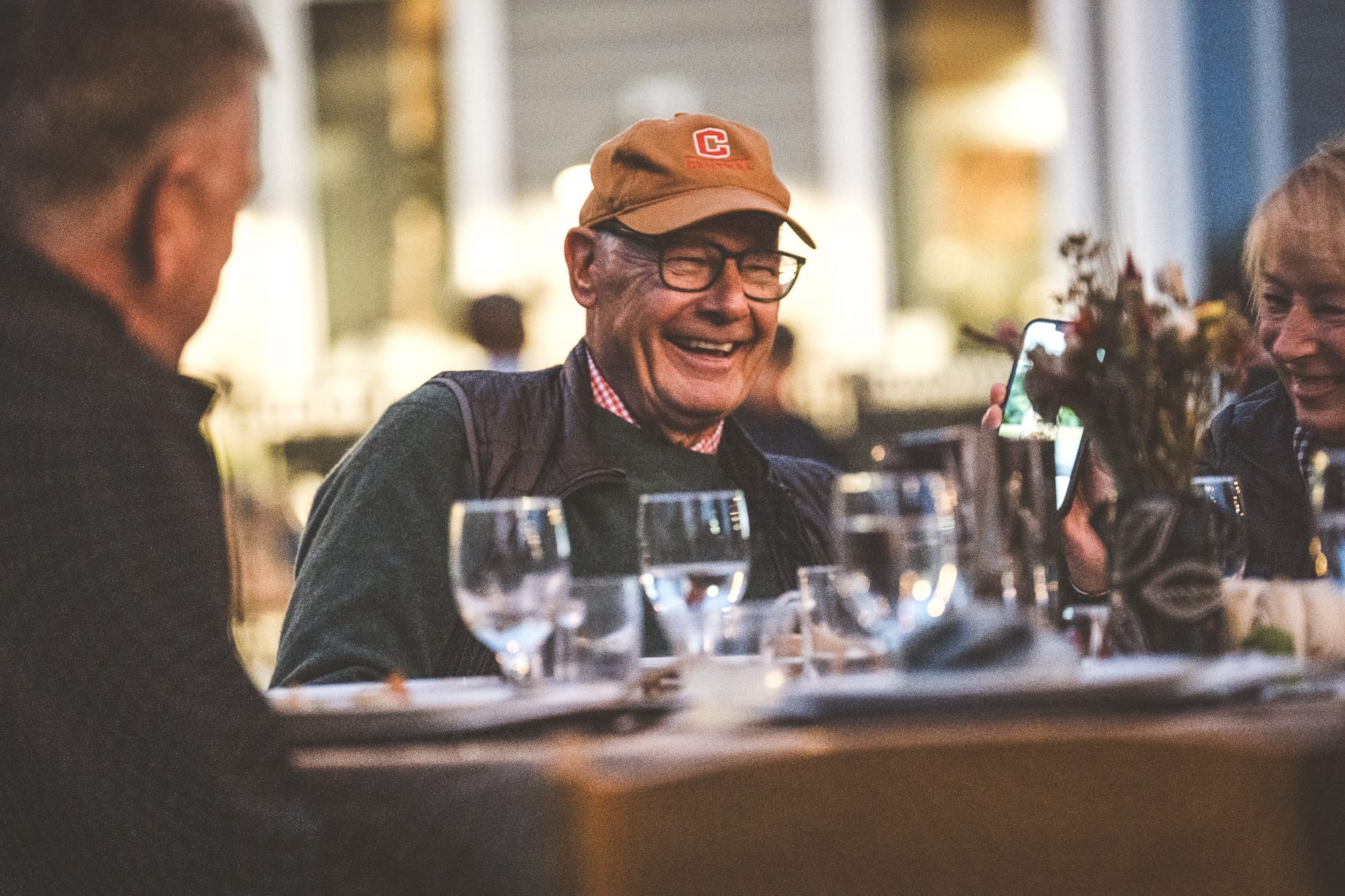
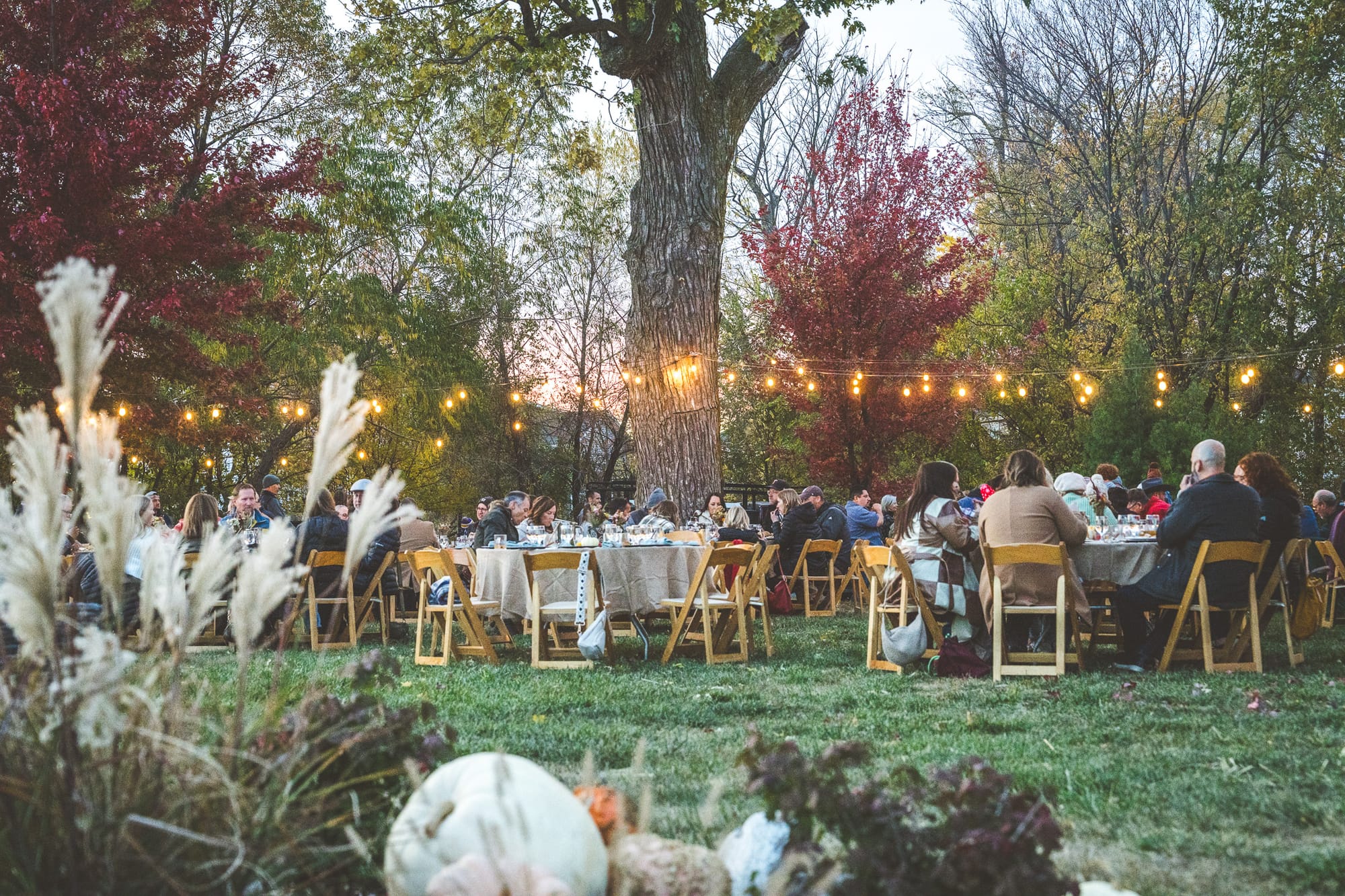
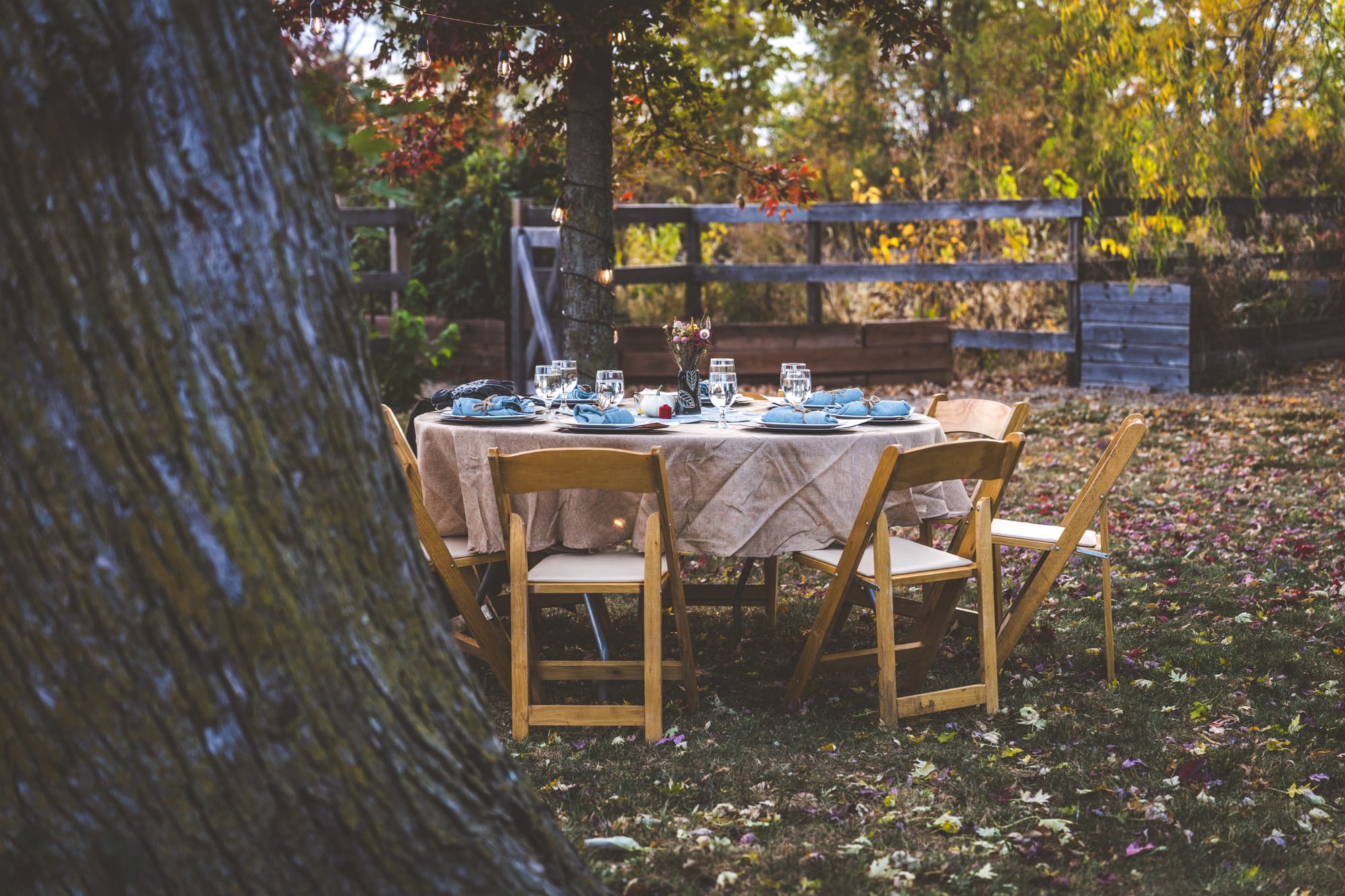
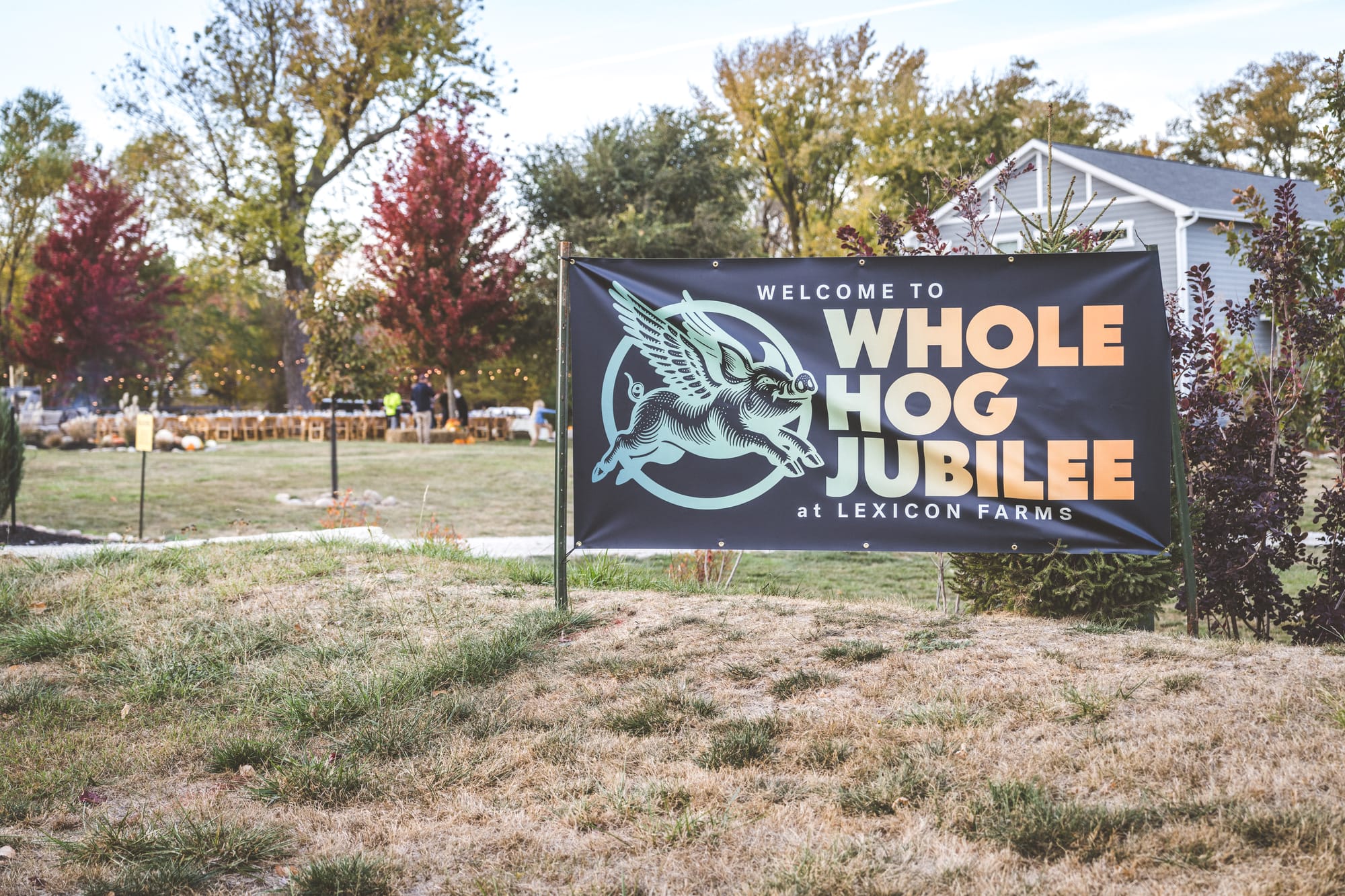
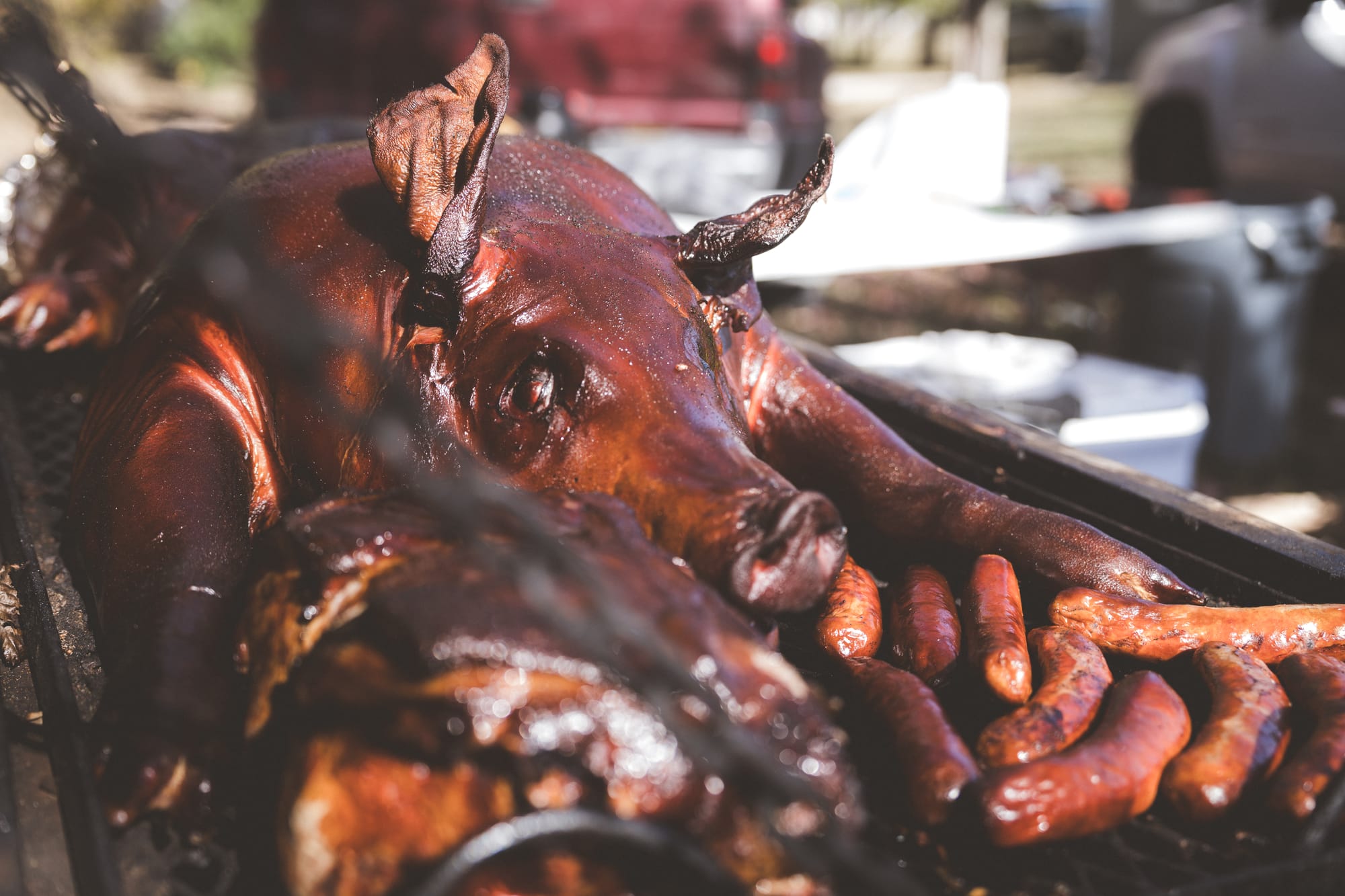
Denzel.
The movie list is below, but Gladiator II won't make that list, because I, like most people, didn't love it. The pastiche script would have imploded in on itself if not for one thing: Denzel. He's legendary in this movie, pulling from his entire lexicon of movie star skills, and his interviews are a rich text of a man in his joyous elder statesmen era. Alongside the movie, one of my favorite podcasts, did a three-episode arc of the Best of Denzel and my god. What an American treasure. He, alongside the Wicked cast (see below), turned the movie promotional tour into required viewing in 2024.
Beethoven Blues by Jon Batiste
Jon Batiste is a pantheon of talent. But what he's doing here, transforming the technical brilliance of the Beethoven catalogue and transmogrifying it into a jazz album worthy of its own attention. It took my breath away.
Seriously, read a book.
Nothing has changed my ability to think, strategize, and consider complexity in a way that my clients appreciate than changing my reading game. I've always been a reader, but in 2020 I decided to reorganize how I read to dramatically increase my long-form intake, both fiction and non-fiction. Today, I read a very intentionally selected 75-90 titles, 30,000+ pages of great long-form writing every year. Here are some ones I loved in 2024.
Reconstructing the Prologue: The Conquest of Cool, The Vanity Fair Diaries, When the Clock Broke
Your mileage my vary, but none of these titles particularly stand out on their own, but I read them in sequence, and all of a sudden our present moment made a lot more sense. The Conquest of Cool tracks how Madison Avenue merged with youth culture, stealing its symbolism and its critique, and created the post-culture yuppies of the 1980s. From there, Tina Brown recounts here bizarre name-droppy catalogue of the 80s from her editor's desk at Vanity Fair. It reads like an origin story of the collusion between media and power, prioritizing sensationalism and performative high culture in a way makes Donald Trump a fait accompli.
All of this culminates with a coordinated collection of conspiracy theorists, media-powered, psuedo-fascists, and political disurptors in the early 1990s laid out in When the Clock Broke. Altogether, these make a steady and somewhat shocking reminder that there's nothing unexpected about where we are. Creative, smart, and complicit people made the road here.
What it Takes to Differentiate
The one client question I answer the most is: how do we show the world we are different? There are two answers. The fast way is to clean up some messaging and get narrower. The longer term answer is to learn how to think well about breaking and maintaining norms aka the business of creativity. Three books stuck with me on that topic this year, all of which I would strongly recommend:
- Slow Productivity by Cal Newport - Knowledge work, must like the knowledge its based on is on hard times. Foolishness packaged in AI-created digital soundbites are being force fed down our gullet like we are all future foie gras. To zig where the wasted world is zagging is to be a great thinker. It's to engage knowledge, transform it into wisdom, and be of service.
- The Creative Act: A Way of Being by Rick Rubin - A beloved book in the last year or so of the creative class, my copy is so heavily dogeared, highlighted, annoted that it looks like it's been attacked. I loved this book so much and return to its inspiring yet practical wisdom (on topics far from beyond classical creativity) on the regular.
- Unreasonable Hospitality by Will Guidara - This was my most gifted book in 2024, I've given out a dozen copies at least. But it is also a book that lots of people read, quote, and reference and do very little to actually emulate. Turns out creating legendary client experiences is a lot of very hard work, but if you want the map, it's all here.
Parenting as the World's End
One of the reasons (other than pleasure) why I stay on top of the trends in literature is because they often portend to the recesses of our collective psyche. By giving us a view into what we're anxious about but dare not speak, narrative fiction, opens up better dialogue with the world, no matter your slice of it. This year, three fiction titles, all published in the last 18 months, played with the culpability of parents in a world gone mad. These aren't Freudian "blame the mother" tropes. They are complex views into the choices we make as adults and how those are experienced and seen by our children. I loved all three of these, but none are for the faint of heart.
- Wellness by Nathan Hill - A study in how our own self-obsessions are played like fiddles in the self-improvement industrial complex and the cost that weighs on the next generation. This was a page turner.
- A Children's Bible by Lydia Millet - an unclear dystopia, children of the upper class left to care for each other and the world while their parents play Nero fiddling while Rome burns. Strangely warm, haunting, and prophetic.
- Prophet Song by Paul Lynch - Last year's Booker prize winner does not disappoint, but it will break your heart. A mother in proto-fascist Ireland faces the impacts to her children one by one all while discovering whether she can trust herself. Not for the faint of heart.
Poetry Corner
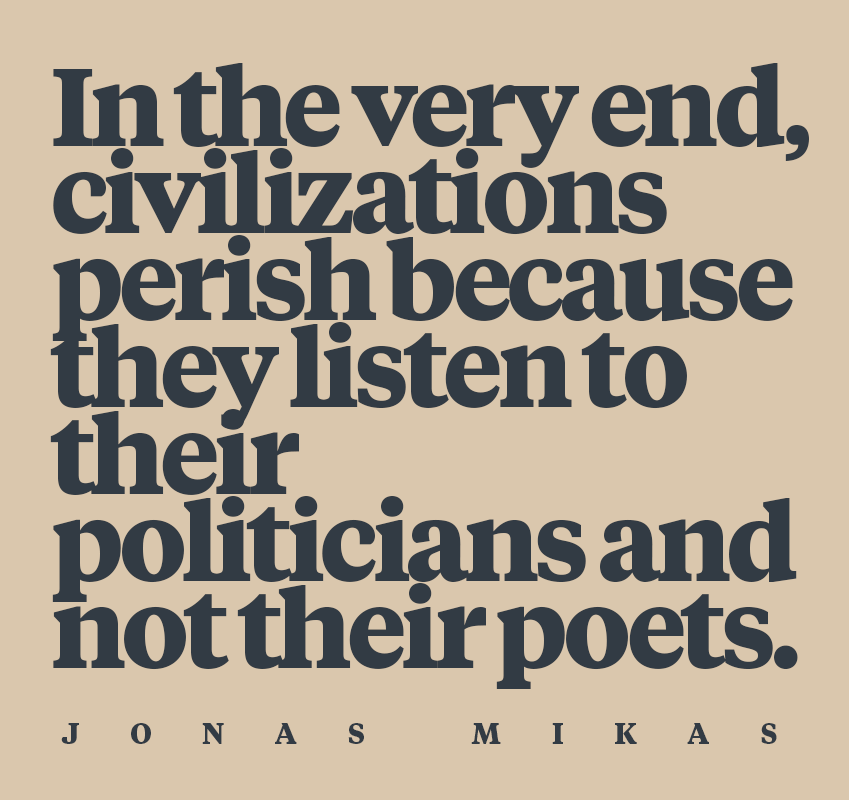
I've never been a poetry guy, but I had my breath taken away by three modern poems this year by three separate poets. And then I explored their larger works only to find more of the same. The best poetry not just opens us up to a fresh views, but it moves the furniture, causing us to bump into things we would rather ignore. It is essential, I can now see, to liberating us from that all too human experience of willful blindness.
- The Wilderness that Bears Your Name by James A. Pearson - Beloved CultureCraft Chief of Staff introduced this to me, and it would not let me go. In particular the poem "The Trail of Seeds" shifted a few organs, and created space for something new to flourish.
- The Magic Words by Joseph Fasano - The final line of Fasano's "For a Student Who Used AI to Write a Paper" was the framing inspiration for last week's edition. You can tell by that tile alone that Fasano is writing modern, of the moment work that cuts through the fog of our technocratic inhuman way of modernity. He's a great follow on BlueSky as well.
- Dangerous Men poem by Lucas Jones - I found Lucas Jones on Instagram where he reads his poetry live on video. Several folks have asked me how to think about raising men (I have three teen/pre-teen boys) in our current climate, a topic I care deeply about. Lucas' poem "I will teach my sons to be dangerous men" (currently unpublished) tore me open, it's final line reading: to be remembered for love and the kindness spent is if nothing else a prayer for our times.
Movies and Television
Media is a dirty word these days. But I am more interested in its roots than its current politicized rancor. "Media" is the plural of "Medium" meaning the format by which we communicate, tell stories, connect, and inspire. As 21st century people we live in an embarrassment of riches of media... so many places to connect and communicate, that we have become callous to them, critical in the worst ways (judging without information) instead of critical in the classic way (passionately driven to deeply engage). I aspire to be a critic in the classic sense: loving things so much as to explore them and their flaws, all in service of better stories, better connection, and a more robust way of being together in the world. Here is some of the "media" I've loved in 2024:
Wicked: I am an unapologetic theater kid, though rarely at the movies. Filmed musicals are one of the primary reasons people hate musicals; they are done so poorly. In contrast, the creators of Wicked knew they had to retain its original integrity while still becoming something else for the big screen and succeeded in ways I didn't know possible. The performances alone are legendary, not to mention practical effects, 9 million tulips, and Jonathan Bailey with more charm than any one person should be allowed. Add to that a truly insane press tour featuring a cast in their unapologitic theater kid, always on the brink of tears, glory... it was the joy-filled mass media moment of 2024.
Dune II: Denis Villeneuve created a masterpiece of blockerbuster cinema, filming the unfilmable, and reminding everyone why we should go to the theater. The sound design alone stuck with me for weeks.
Challengers: Damn I missed this genre of film. We used to be a society where a tight little story with great acting, some intrigue, and a killer score could bring people together. Challengers was all that and more. Crossing my fingers for Trent Reznor and Atticus Ross to take home the statue for that score.
Civil War: This exited the discourse as quickly as it came, in part because it was wrongly assumed to be political commentary during an election year. When in fact, it was a study in perspective. The power of Civil War was it’s brutal (and it is brutal) willingness to have more questions than answers. It’s a cacophony of bullets mixed with silence, its sardonic soundtrack paired up against the piles of dead bodies in the wake of propaganda gone wrong. I wrote about this one at length on my personal site for those wanting more.
The Fall Guy: If we could have summer 2024 back, I would make more of you go to The Fall Guy. It was funny. It had explosions. It was a perfectly imperfect summer blockbuster—like Romancing the Stone or The Italian Job which would get us out of our houses, around a bucket of popcorn, and letting the power of a big screen and a few dozen neighbors laughing together take us away.
English Teacher (FX/Hulu): This is the best new show on television this year and it isn't close. There are other more penseive art pieces that did great work (I'm looking at your Ripley) but English Teacher with its post-woke, GenZ vs Millennials sardonic slap fight feels like it has the pulse of this moment in the way nothing else on TV did in 2024.
Rivals (Hulu): Warning, this show is NSFW. A campy, dramatic, funny and escapist story about the power of traditional TV in the 1980s seen through the lens of silly rich Brits, is about as good as TV gets.
X-Men '97 and Agatha All Along (Disney+) These are both deep genre cuts on the old D+, but represent the best of that platform this year. Fearless shows run by visionary storytellers who absolutely loved the properties entrusted to them. We are going to be in an IP TV world for a very long time, so as long as we're here, keep making weird stuff like this.
The Bear, Season 3 (FX/Hulu) I thought about leaving The Bear out this year. I've mentioned it every year thus far and many see Season 3 as its weakest outing. But S3 is doing someting so specific, hanging us out on a limb on the question of "How far should the passion of art go" that I couldn't possibly ignore it. Ep1 (which many hated, but I loved) lays down the entangled traps of a psyche that doesn't know the difference between inspiration and suffering all in a 40-minute episode with almost no dialogue. And then two episodes later its laugh-out-loud hilarious. A master work.
2024 has a few gasps left, but what it has given will go with me for a long while. I hope you found in this (very long) review a few things of your own to love. That's where it begins friends. Find a few things to love. And then a few more. Love them enough to challenge them, critique them, care what they become. Become a part of the "we" that owns them, not the "them" that stands outside the fire. And when we all wrap our hands around as many things has we possibly can love... then we can make a world.
See you back here in 2025. You're gonna love it.
P.S. - Don't forget to register for our Mapping the Distrust Forum in January. The live event is going to be like nothing I've ever done. I think it will be worth your time.

